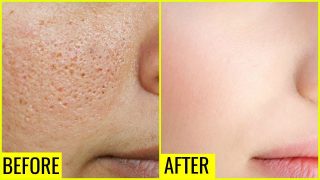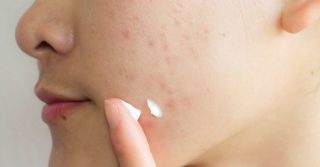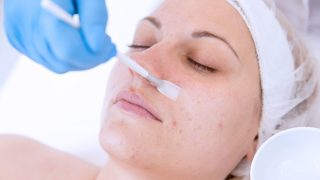Large Open Pores Treatment In Islamabad
WHAT CAN TREAT LARGE FACIAL PORES?
Nearly every patient asks about visible or enlarged pores, even if it’s not their primary concern. People of every age and skin type are concerned about pores. But what everyone needs to know is that pores are not a flaw in your skin! We’re human beings, so we have pores, it’s normal. That said, pores do get enlarged, and we at Skinsmith have lots of treatments for them.
To keep the column clear for patients with really clogged pores or even breakouts, it’s great to combine mild chemical peels with an intense pulsed light laser that’s mixed with suction action. The laser helps kill the bacteria that drive acne and helps normalize the skin tone, getting rid of some of the discoloration from acne; the suction helps clear pores; and then doing a gentle chemical peel over it really improves pores and problem skin.
To help build the collagen back up, we use laser resurfacing therapies. It’s a broad category with many brands, all aimed at stimulating collagen, from very noninvasive technologies to more intense treatments that can help remodel collagen and cause collagen production.
Acne Scar
What’s the best treatment for acne scars?
Acne scars are stubborn, and no single treatment is best for everyone.
One or a combination of the following approaches might improve the appearance of your skin, depending on your scar type, your skin type, and the severity of the scarring. We at Skinsmith have comprehensive acne treatment plans.
-
Home Skincare
Using sunscreen can help limit the contrast between unscarred skin and a scar. Some medicated creams, such as those containing azelaic acid or hydroxyl acids, might help too.
-
Soft tissue fillers
Injecting collagen, fat, or other substances under the skin can plump the skin over indented scars. The goal is to make the scars less noticeable. Results are temporary, so repeat treatments are needed to retain the effect. This method has little risk of changes in skin color.
-
Steroid injection
Injecting steroids into some types of raised scars can improve the appearance of your skin.
-
Laser resurfacing
This approach is increasingly popular and is often used on scars that were once treated with dermabrasion. This technique has an increased risk of side effects for people with darker skin or a history of keloids.
-
Other energy-based procedures
Pulsed light sources and radiofrequency devices help make scars less noticeable without damaging the outer layer of skin. Results are subtle, and you might need repeat treatments.
-
Dermabrasion
This procedure is usually reserved for more severe scarring. Your doctor removes the top layer of skin with a rapidly rotating brush or other device. Surface scars may be completely removed, and deeper acne scars may appear less noticeable. Potential severe side effects include scarring and changes in skin color.
-
Chemical peel
Your doctor applies a chemical solution to the scar tissue to remove the top layer of skin and minimize the appearance of deeper scars. You can repeat mild and medium peels to maintain results. You can have only one deep peel. Potential side effects include changes in skin color, especially with deep peels used on dark skin.
-
Skin needling
Your doctor rolls a needle-studded device over the skin to stimulate collagen formation in the underlying tissue. It’s a safe, simple, and possibly effective technique for acne scarring. It has minimal risk of discoloring the skin. Results are subtle, and you may need repeat treatments.
-
Botox
Sometimes the skin around acne scars puckers. Injecting Botox relaxes the surrounding skin, which may improve the appearance of an acne scar. Results are temporary, so repeat treatments are needed to retain the effect.



